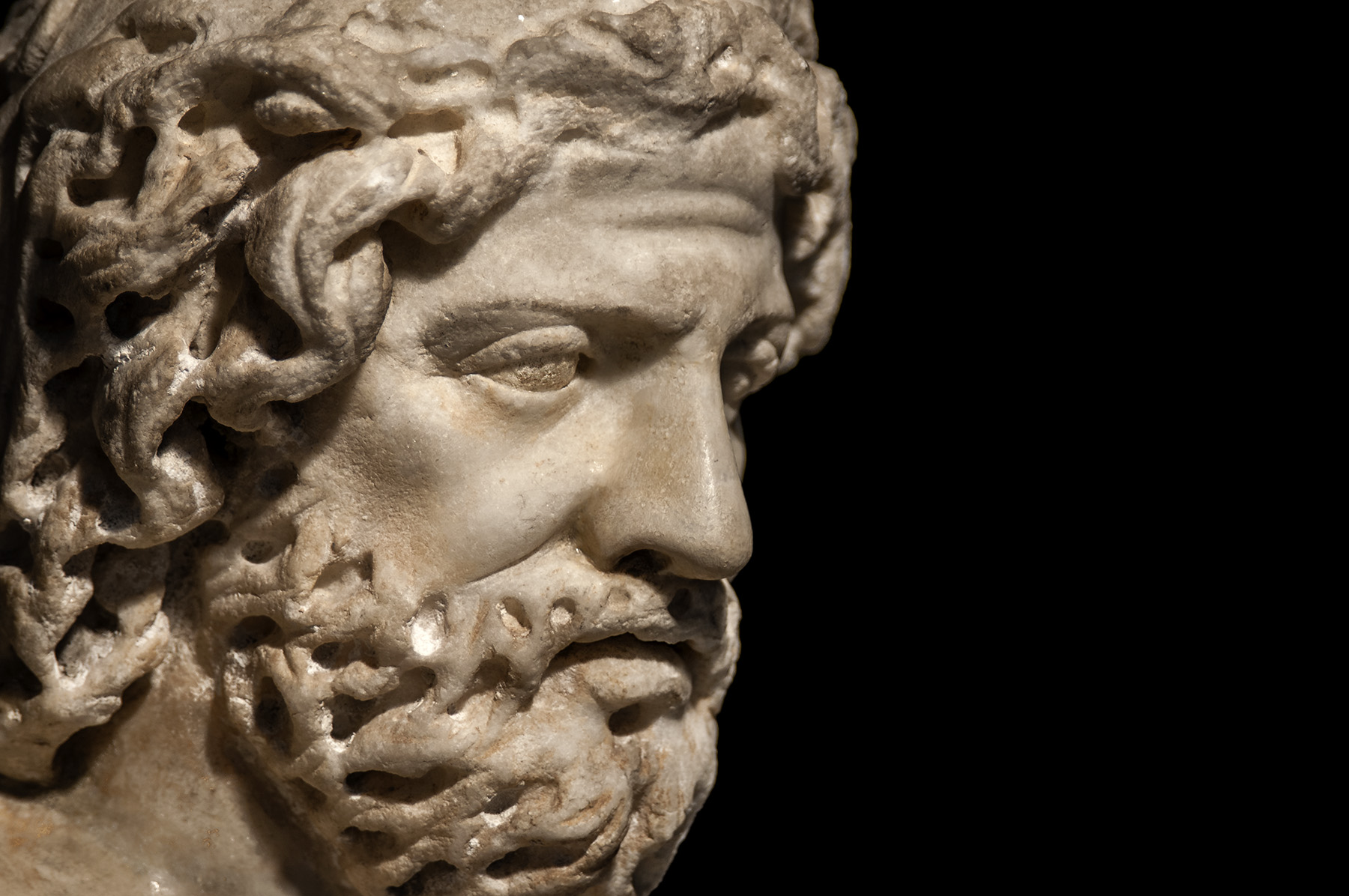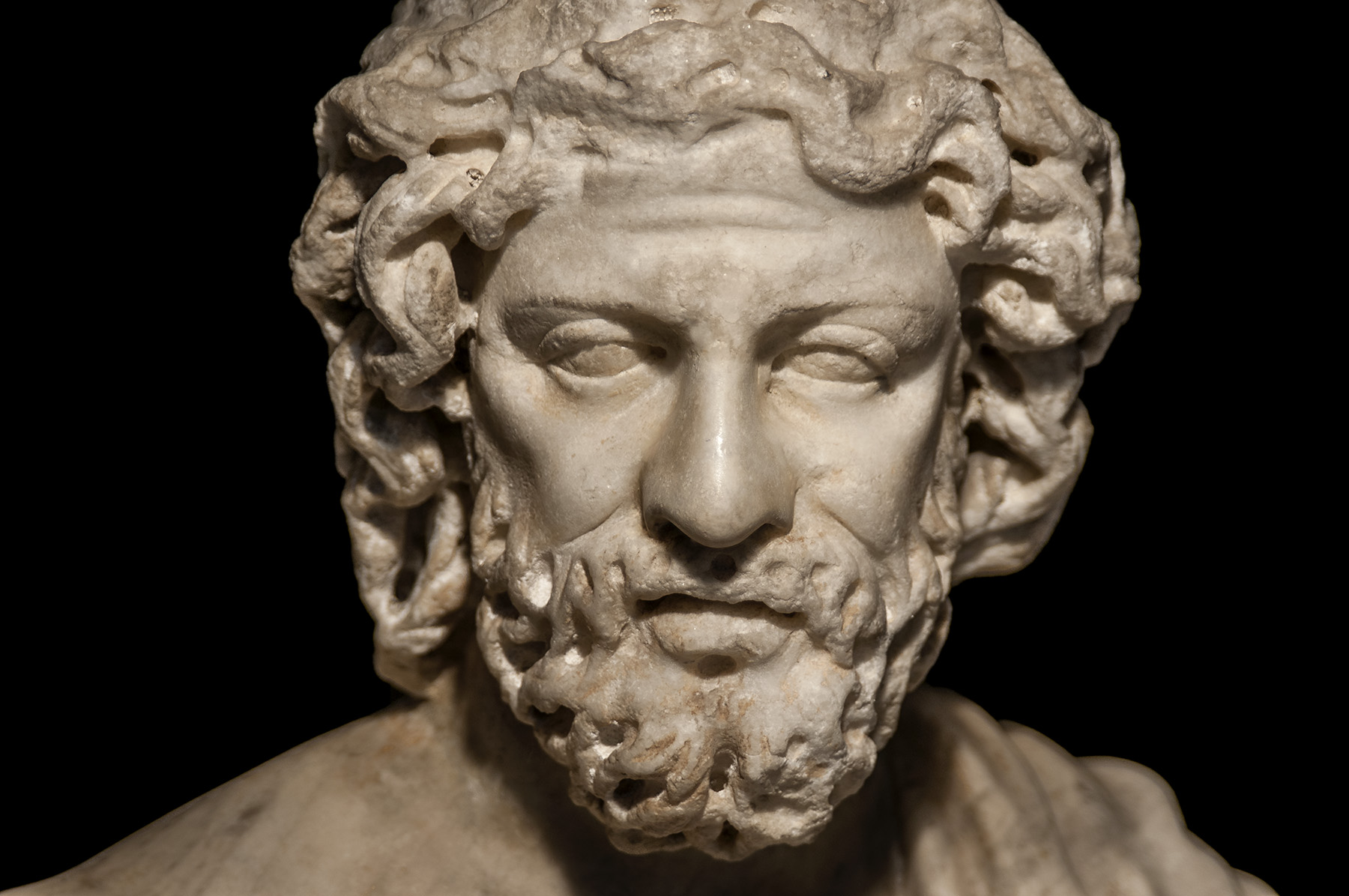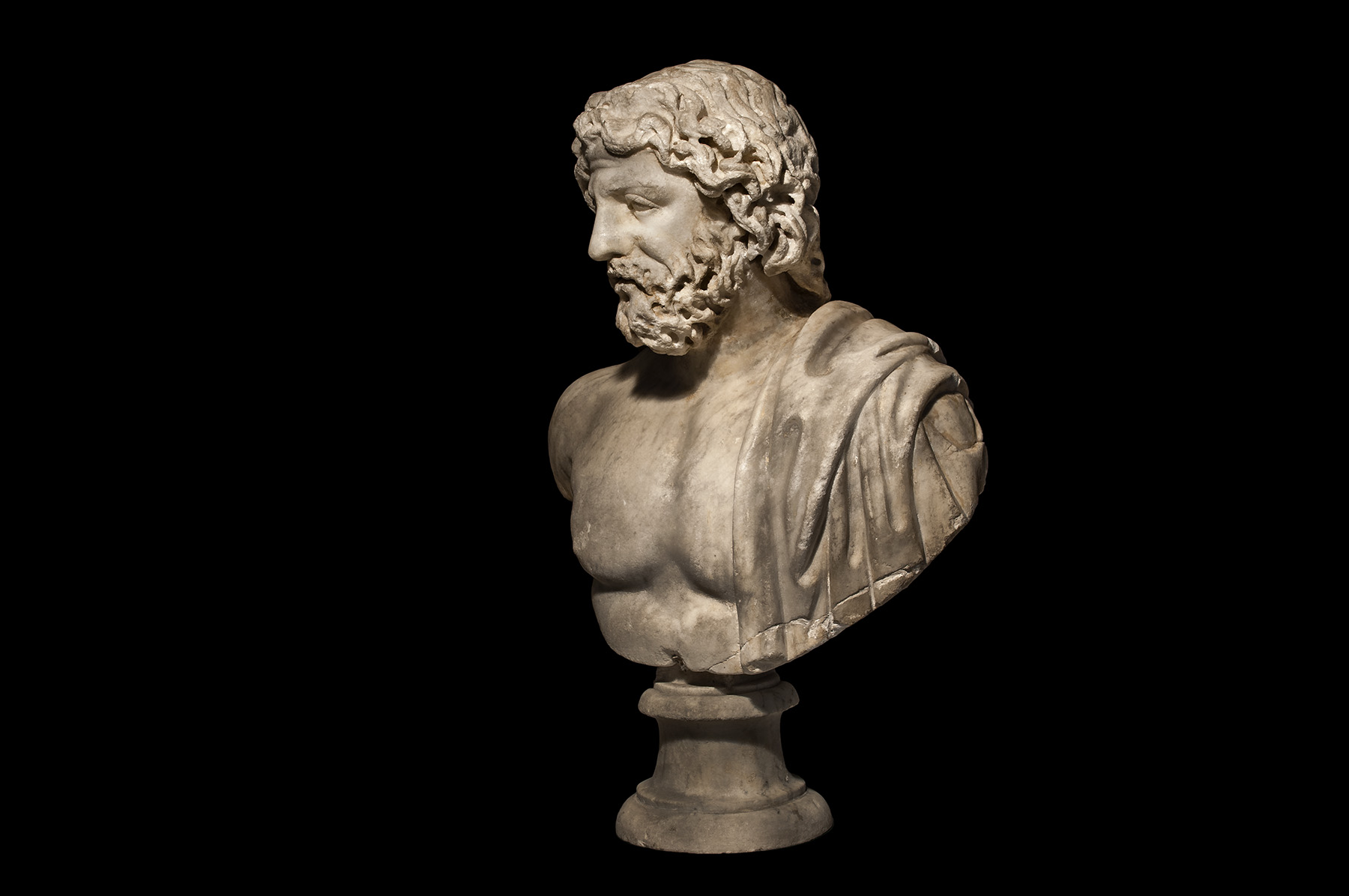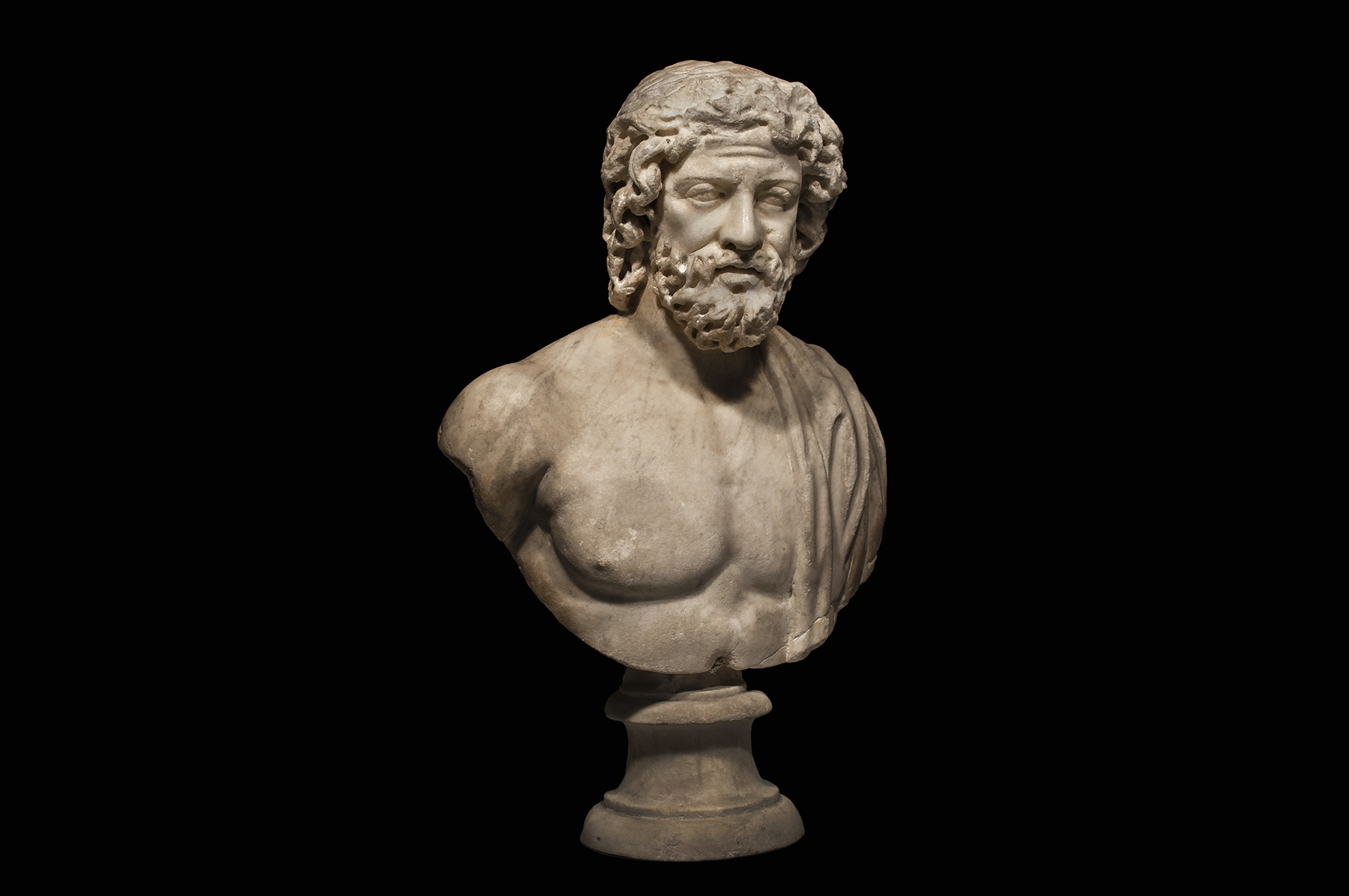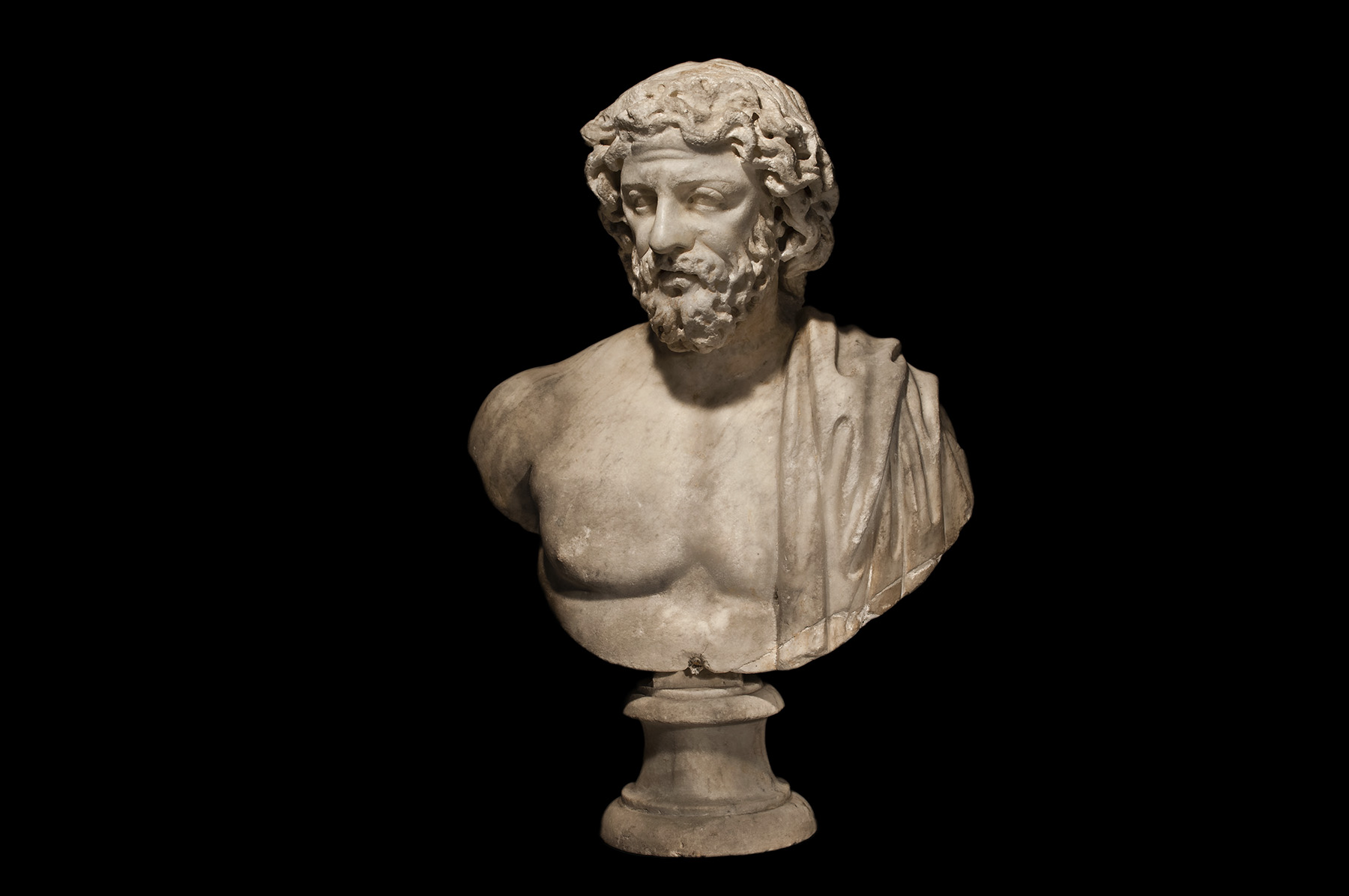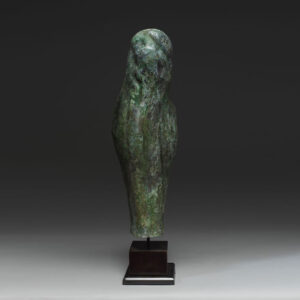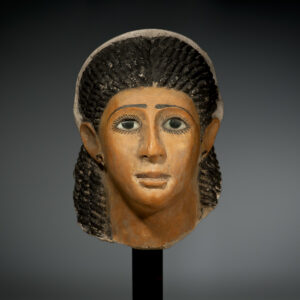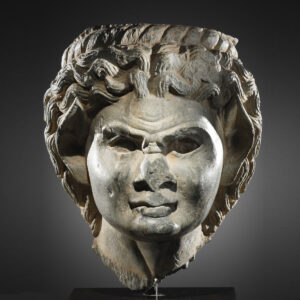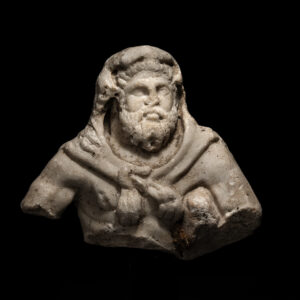Ancient Roman portraiture comprised the full range of classes and populations found throughout the Roman Empire. Dating from approximately 300 C.E., this white marble bust of a barbarian is a candid representation of one of the many non-Roman citizens who comprised the region’s population. Just one of his shoulders is draped in a robe, baring his chest to the viewer as he lowers his head slightly to meet our gaze. He is vulnerable in his status as a non-citizen, yet the inherent strength of a man outside of the Empire’s law is seen in the strong pectorals and furrowed brow of this particular barbarian.
Roman sculpture in the 4rd century C.E. had become highly realistic in the pursuit of an idealized beauty, and this marble bust is a prime example of how striking this realism could be. The bust still stands on its original pedestal, and the piece is in excellent condition having been protected and cared for throughout the centuries.
The lower part is a later addition from the 17th to 18th century C.E.. This period was marked by Roman master sculptors working on ancient marble.





